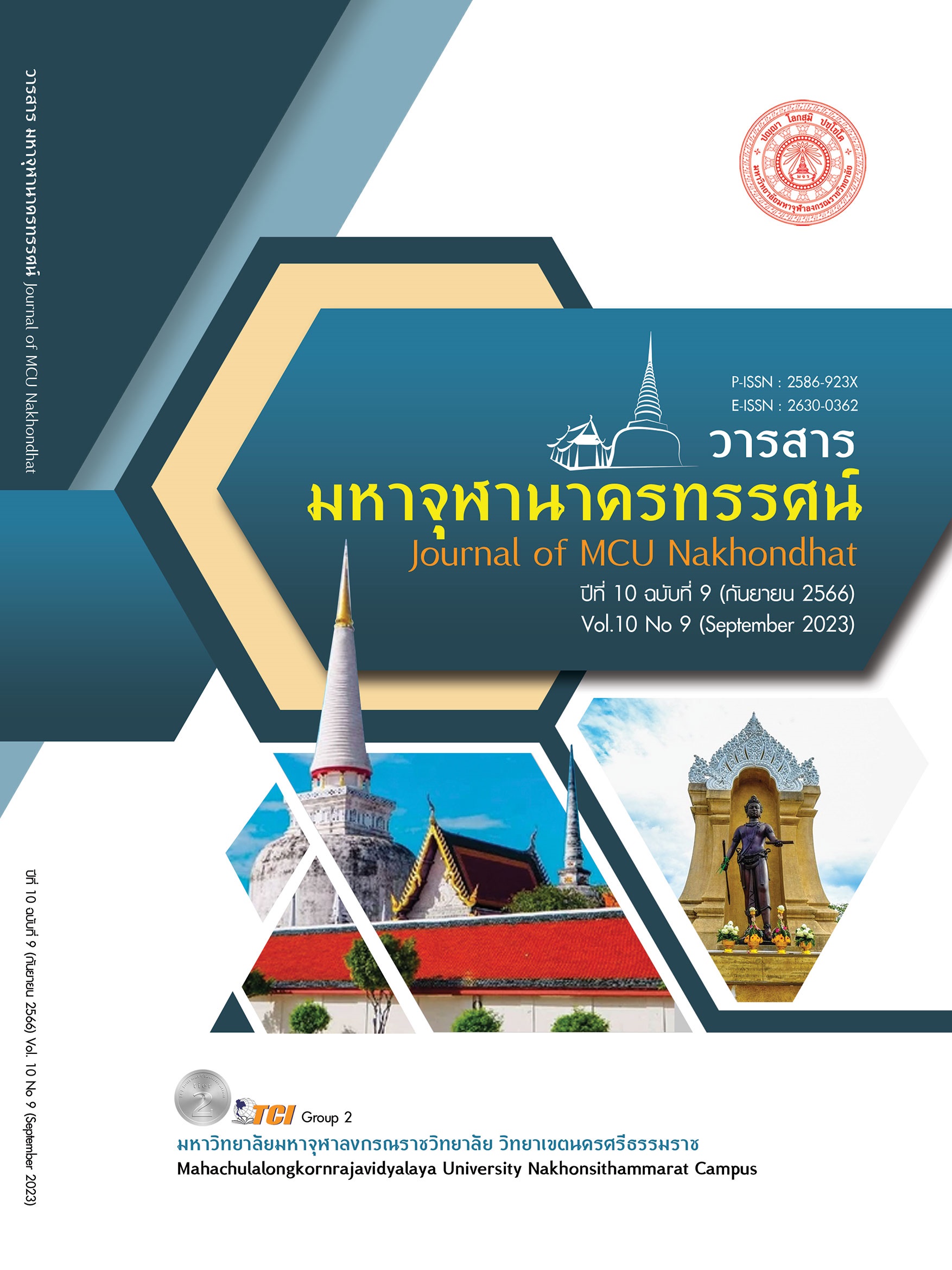GUIDELINES FOR THE PREVENTION OF DRUG PROBLEMS FOLLOW UP ON SUSTAINABLE COMMUNITY OPERATIONS
Main Article Content
Abstract
This research aims to 1) study key factors of successful operation in sustainable community project to solve drug problems in the community and 2) to develop guideline from sustainable community operation in terms of prevention and solve of drug problems. This is qualitative research and in - depth interview was a tool to gather data. The samples were involved in sustainable community operation that consisted of 30 participants of the project, 30 officers, 30 village/community committee and 30 people in community area. This research was employed technique of content analysis to examine data. It found that firstly, successful factor is collaboration in the same direction. Then, another factor is the budget that is important in term of project implementation and in terms of treatment. These factors can be used to develop guidelines for project implementation, particularly making confidence to people in the community. This considers to be the importance of first step in reassuring the public in non - prosecution. Also, clear procedures must be publicized, especially post - procedures of treatment and guidelines for life support of reentry in society. Finally, people and community leaders in the community must be robust and continue the project on their own track by comprehension in community context and basics of the people in the community. In addition, a precise goal must be established and direction of the project must be clear and as well as a systematic follow - up and evaluation.
Article Details

This work is licensed under a Creative Commons Attribution-NonCommercial-NoDerivatives 4.0 International License.
References
เกษมศานต์ โชติชาครพันธุ์ และคณะ. (2562). โครงการประเมินการดำเนินงานตามแผนปฏิบัติการป้องกัน ปราบปราม และบำบัดรักษายาเสพติด ปี 2562. วารสารสำนักงาน ป.ป.ส., 36(2), 44 - 52.
ตำรวจภูธรจังหวัดเชียงใหม่. (2566). โครงการดำเนินงานชุมชนยั่งยืนเพื่อแก้ไขปัญหายาเสพติดแบบครบวงจรตามยุทธศาสตร์ชาติ. เรียกใช้เมื่อ 25 กรกฎาคม 2566 จาก https://www.chiangmaihealth.go.th/ document/230617168700479164.pdf
ธัญกนกรัชต์ จิรโชคนิธิชโยธร และคณะ. (2564). แนวทางการมีส่วนร่วมในการดำเนินโครงการป้องกันและแก้ไขปัญหายาเสพติด ของพระสงฆ์และประชาชนในเขตเทศบาลเมืองหนองคาย อำเภอเมืองหนองคาย จังหวัดหนองคาย. Journal of Modern Learning Development, 7(1), 11 - 29.
นิภาวรรณ ตติยนันทพร. (2565). การมีส่วนร่วมของครอบครัวและชุมชนในการป้องกันและบำบัดยาเสพติด. วารสารศูนย์อนามัยที่ 9, 16(2), 581-596.
ประยุทธิ์ วะนะสุข. (2563). การสร้างชุมชนเข้มแข็งเพื่อเอาชนะยาเสพติดอย่างยั่งยืน กรณีจังหวัดลพบุรี. วารสารวิชาการมหาวิทยาลัยปทุมธานี, 12(1), 347 - 361.
ภาดา ทาสีเงิน. (2558). แนวทางการสร้างความร่วมมือป้องกัน และแก้ไขปัญหายาเสพติดของผู้นำชุมชนในจังหวัดอุตรดิตถ์. วารสารบัณฑิตวิทยาลัย พิชญทรรศน์, 10(1), 67 - 76.
ลาวัลย์ วัชรศักดิ์เวช. (2564). UNODC: ขบวนการค้ายาเสพติดขยายตัว แม้มีโควิดระบาด. เรียกใช้เมื่อ 20 กรกฎาคม 2566 จาก https://www. benarnews.org/thai/news/th - sea - drugs - 0610 2021144949.html
ศิริเพ็ญ ศุภกาญจนกันติ และคณะ. (2563). โครงการประเมินความสูญเสียทางเศรษฐกิจและสังคมอันเนื่องมาจากยาเสพติด ระยะที่ 1. วารสารสำนักงาน ป.ป.ส., 36(2), 53 - 61.
สัณฑภวิษย์ มากช่วย. (2558). ปัจจัยที่เป็นอุปสรรคต่อความสำเร็จในการนำนโยบายแก้ไขปัญหายาเสพติดไปปฏิบัติของกองบัญชาการตำรวจปราบปรามยาเสพติด. วารสารวิชาการมหาวิทยาลัยอิสเทิร์นเอเชีย ฉบับสังคมศาสตร์และมนุษยศาสตร์, 5(2), 176 - 187.
สำนักงานคณะกรรมการป้องกันและปราบปรามยาเสพติด. (2566). นโยบายและแผนระดับชาติว่าด้วยการป้องกัน ปราบปรามและแก้ไขปัญหายาเสพติด (พ.ศ. 2566 - 2570). เรียกใช้เมื่อ 11 สิงหาคม 2566 จาก https://www.oncb.go.th/Home/ PublishingImages/Pages/ONCB_PLAN/Policyactionplan/นโยบายและแผนระดับชาติ%2066 - 70.pdf
สุชาติ ประสิทธิ์รัฐสิน. (2562). โครงการศึกษาวิจัยเพื่อจัดทำเครื่องมือและเกณฑ์การประเมินสถานะปัญหายาเสพติด. กรุงเทพมหานคร: พรรณวดี ก๊อปปี้เซ็นเตอร์.
อเนก นาคะบุตร. (2547). บทเรียนและองค์ความรู้จากชุมชนเพื่อแก้ปัญหายาเสพติดอย่างยั่งยืน. กรุงเทพมหานคร: สำนักงานคณะกรรมการป้องกันและปราบปรามยาเสพติด กระทรวงยุติธรรม.


